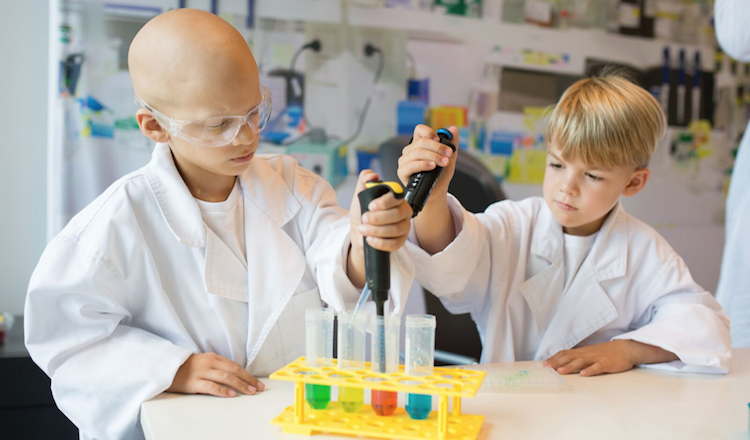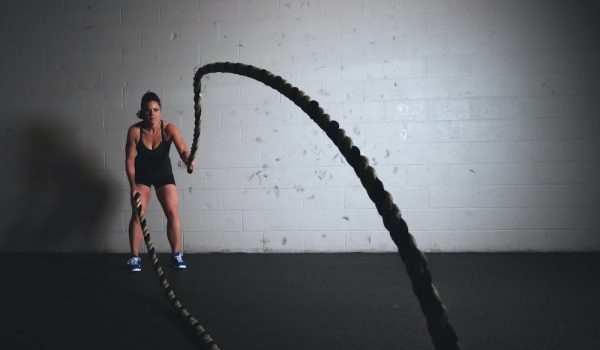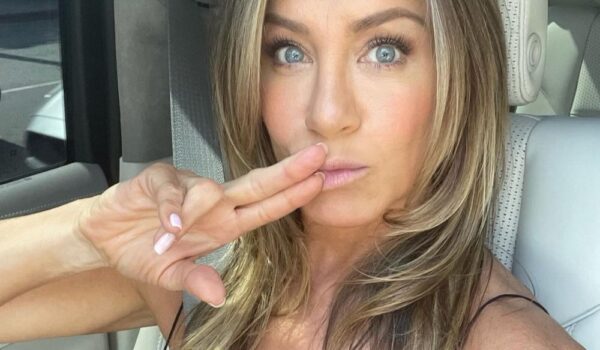Nobody looks into their baby’s eyes when they’re born and thinks they’ll be diagnosed with cancer. And yet, every week, up to three families have to say goodbye to their child because of cancer.
It’s the biggest killer of any disease for children and adolescents in Australia.
At Children’s Cancer Institute, there is no acceptance of these shocking statistics. Every day, the Institute’s researchers go to work with one, unwavering goal – to find a cure for childhood cancer.
“As a result of medical research, 80% of children diagnosed with cancer now survive,”said Professor Michelle Haber AM, Executive Director of the Children’s Cancer Institute. “But despite the dramatic improvements in survival rates over the past 50 years, still nearly three children are dying from their cancer every week in Australia. We don’t think this is good enough, and are determined to complete the research needed to find new treatments so that every child like Declan survives. This won’t be easy, as childhood cancer is hugely complex, but we believe if we can raise sufficient funds to undertake the research we will one day find a cure for every child with cancer in the foreseeable future.”
For the past 10 years, the Children’s Cancer Institute has been researching the drug difluoromethylornithine, or DFMO. They discovered that using a combination of DFMO and chemotherapy drugs was more effective at killing neuroblastoma cells in the lab, than chemotherapy alone. This discovery has led to a world-first clinical trial in partnership with The Sydney Children’s Hospital, Randwick, as well as 14 hospitals across North America. It’s showing positive results for the treatment of high-risk neuroblastoma like Declan’s, pictured above.
While the treatment may not cure Declan, it has given his family precious months they never would have had with conventional treatments.
“We’re sharing our story so that other families don’t have to go through what we have,” said Declan’s mother Kim from Perth, WA.
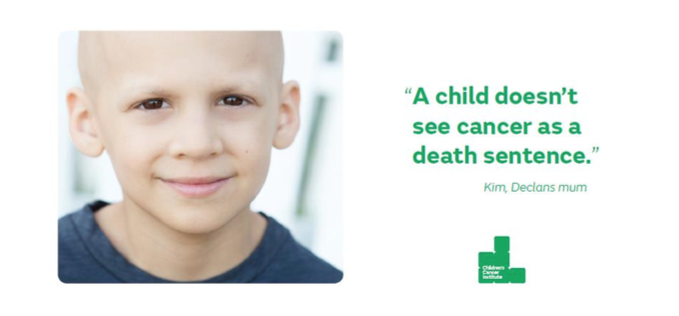
Sixty years ago, a diagnosis of cancer in childhood was a death sentence. Today eight out of ten children survive beyond five years. This staggering improvement is because of one thing – research.
However, in Declan’s case, the odds were nowhere near as good. Declan was diagnosed with stage 4 advanced widespread neuroblastoma just before he turned four-years-old. Neuroblastoma is the most common solid tumours of young children.
“Declan had a scan which confirmed that he had a tumour in his abdomen the size of his dad’s fist,” said Kim. “It was stage 4, in his bones and bone marrow as well. He started treatment straight away. We were in complete shock. My first thought was, ‘not everybody dies of cancer’. “
Unfortunately, with high-risk neuroblastoma like Declan’s, the risk of death is extremely high – with less than a one in two chance of survival. If a child relapses after initial treatment, they’re considered incurable.
That’s why the Children Cancer Institute’s research into DFMO is so important, because it offers real hope of a new treatment approach for children with these aggressive tumours.
Declan’s treatment began at Princess Margaret Hospital, Perth, WA, with five gruelling cycles of chemotherapy treatment followed by a nine-hour operation to remove his tumour.
Kim said: “There was such a high risk of him bleeding out because of where the tumour was. The surgeon came to see us and told us they had managed to get it all out. It was funny actually, my husband Simon jumped on the table and gave the surgeon the biggest hug; he did not know what hit him. We were just so thankful that it had gone so well. I did what mums do and sat there and cried.”
During his treatment, Kim and Simon tried to keep things as normal as possible for the whole family. But Declan had to give up swimming, which he loved.
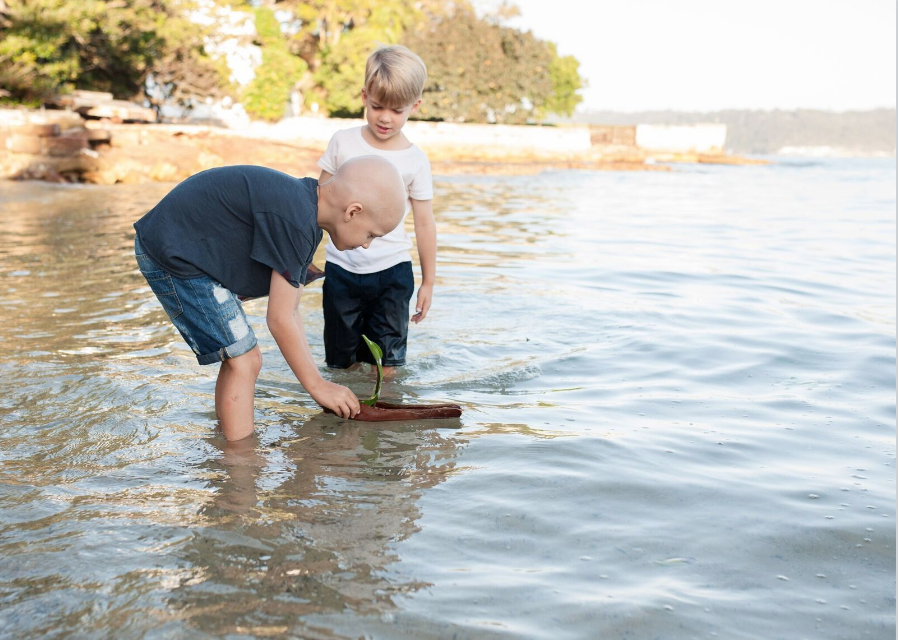
Declan plays with his younger brother Brodie
“It was also really hard on Brodie, Declan’s younger brother, because he missed out as well,” added Kim. “But it wasn’t fair to take Brodie swimming and have Declan just sitting and watching.”
In August 2013, Declan was declared in remission. It was a big day for the family. After several more months of gruelling treatment, including radiation, immunotherapy and a stem cell transplant he was allowed to go home two months early, because he had been handling it so well. Sadly, it was not to last.
By January 2015, scans showed two new tumours, one on his ninth vertebra and another on his left hip. It was devastating news for the family.
“It was worse the second time around, because you know there is no cure,” said Declan’s mum Kim. “We always knew there was a high risk that it would come back, but we did not know it would be that quick. That just shows how aggressive this cancer is. All of that treatment and six months later it still came back. It was life-shattering.”
When Declan relapsed, the options open to him were few. When it was suggested entering him into the DFMO clinical trial at Sydney Children’s Hospital for children in Randwick with relapsed neuroblastoma, Kim and Simon decided to take the chance, even though it meant flying across the country.
The DFMO clinical trial is the culmination of ten years of research by Children’s Cancer Institute. It all began when the Institute discovered how much more effective a combination of DFMO and chemotherapy drugs were at killing neuroblastoma cells in the lab. This was pretty exciting, because it suggested that the Institute might be looking at a new way forward for children diagnosed with high-risk neuroblastoma. Even better, because the drug is already in use in adults, the Institute didn’t have to wait for long-term approvals for a clinical trial to commence.
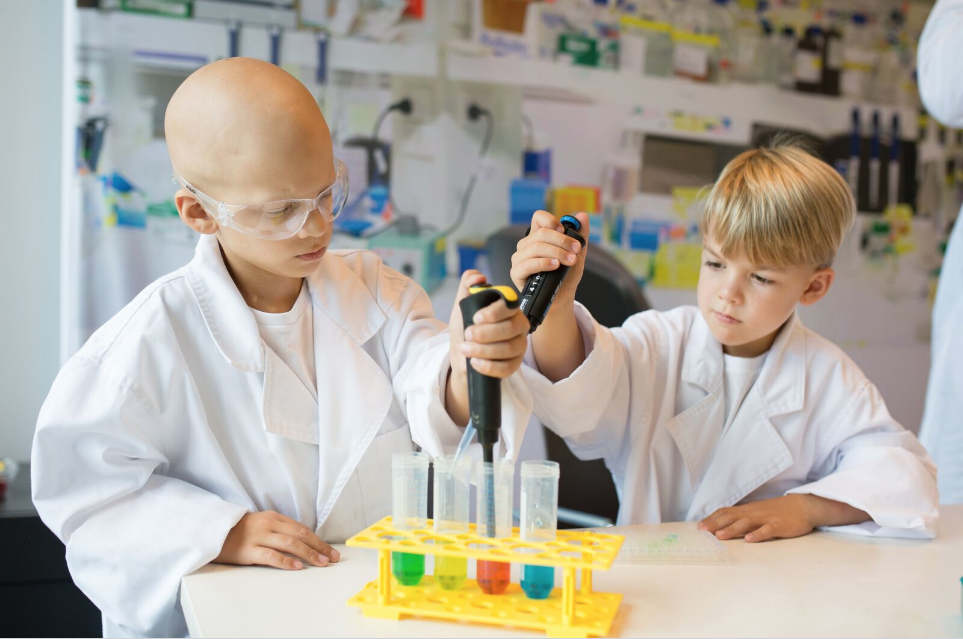
Declan and his brother Brodie playing in the mock-lab at Children’s Cancer Institute
Declan became part of this ground-breaking research. He has had some encouraging results, with one tumour initially disappearing and another reducing in size. He’s also experiencing fewer side effects from the treatment. That is one of our most important challenges at the Children’s Cancer Institute, researching new treatments that are safer and easier for young children to bear, with fewer long-term side effects.
“We have children on this trial that are now alive 12 months on. Declan is one of these children who’ve been given 12 additional months or more, of high-quality life as a result of being on this ‘DFMO clinical trial – that’s the power of medical research” said Professor Michelle Haber AM, Executive Director of Children’s Cancer Institute.
Kim and Simon know that there is nothing more, at this point, which will save their son. What they are grateful for though, is time.
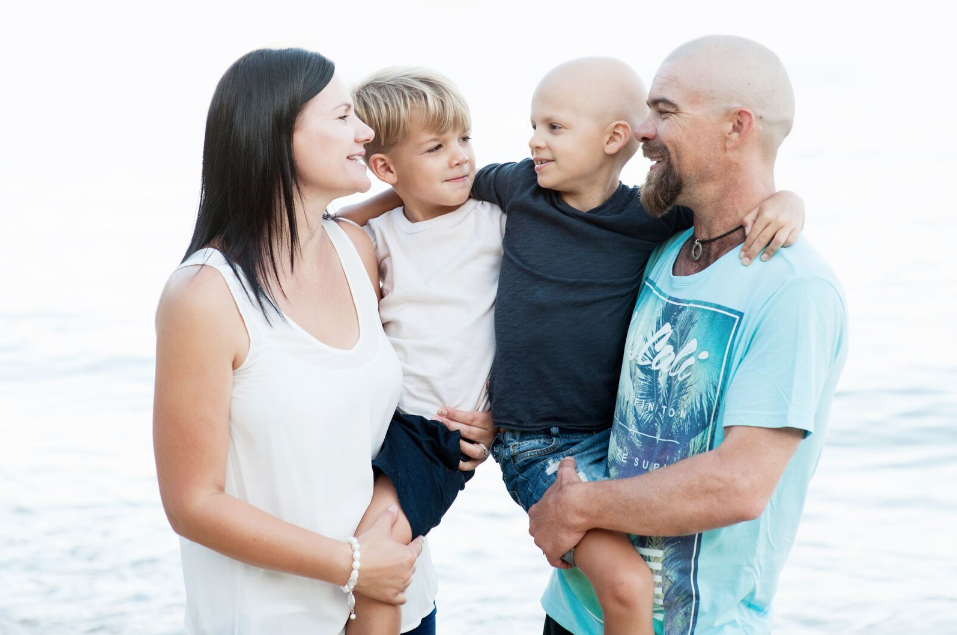
Parents Kim and Simon share precious moments with their sons Declan and Brodie
“Research is vital,” said Kim. “When we finished treatment in 2014, we knew if he relapsed there were no options, but research is changing that. If it weren’t for this trial, we wouldn’t have had Declan for as long as we have.
“We have chosen to put Declan on this trial, knowing it’s not a cure for him. We are doing it for the future, to help other children further down the track and ensure other families don’t have to go through this.
“As a family we have experienced first-hand the difference research is making. It has given us more days.”
The Children’s Cancer Institute is the only independent medical research institute in Australia, existing solely to cure childhood cancer and improve the quality of life for survivors. The Institute receives funding from the government and grant funding bodies, but approximately 50% of all research funds must be sourced from the donors, partners and supporters in the community. For more information, visit www.ccia.org.au.
The Carousel would like to thank Kim and Simon for sharing their story about Declan and the Children’s Cancer Institute.
The international clinical trial for children with relapsed neuroblastoma, being led by Sydney Children’s Hospital, Randwick, is the result of ground breaking research by Children’s Cancer Institute. The cost of the DFMO for this clinical trial is being supported by The Kids Cancer Project and Lions Childhood Cancer Research Foundation.

